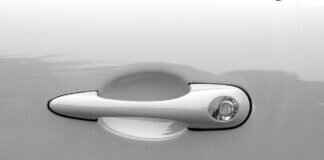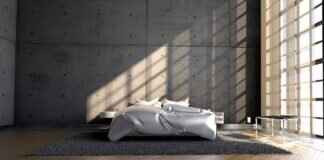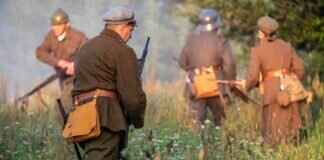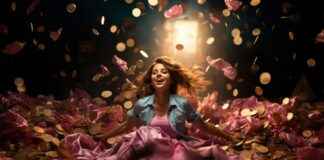This article delves into the critical timeframe for filing a dog bite lawsuit, emphasizing the statute of limitations, its variations across different states, and other crucial factors that victims must consider when seeking legal recourse.
Understanding the Statute of Limitations
The statute of limitations refers to the legal time limit within which a lawsuit must be filed. This period varies significantly by state and the nature of the claim, making it essential for dog bite victims to be aware of their specific deadlines. Generally, the time frame can range from one to six years, depending on the jurisdiction.
Factors Influencing the Time Limit
- The circumstances of the incident
- The age of the victim at the time of the attack
- Whether the dog has a known history of aggression
State-Specific Laws
Each state has unique laws governing dog bites, which can influence how long a victim has to file a claim. For instance, some states may have a strict liability statute, while others may require proof of negligence. Understanding these variations is crucial for victims looking to navigate the legal landscape.
Comparing State Statutes
| State | Statute of Limitations |
|---|---|
| California | 2 years |
| Texas | 2 years |
| Florida | 4 years |
Exceptions to the Rule
In certain circumstances, exceptions may extend the statute of limitations. For example, if the victim is a minor or if the dog owner is unreachable, the time limit could be adjusted. Victims should consult legal professionals to understand their specific situations.
Common Misconceptions
Many myths surround the statute of limitations for dog bite lawsuits. It’s important for victims to clarify these misconceptions to understand their rights fully and the necessity of acting promptly.
Steps to Take After a Dog Bite
After experiencing a dog bite, victims should take immediate steps to ensure their safety and protect their legal rights. This includes:
- Seeking Medical Attention: Prompt medical care is vital for health and documentation.
- Reporting the Incident: Notify local authorities to create an official record.
Consulting a Legal Professional
Engaging with an attorney who specializes in dog bite cases can provide invaluable insights and guidance. An experienced lawyer can help navigate the complexities of the legal process and increase the chances of a successful outcome.
Conclusion: The Importance of Timely Action
Understanding the statute of limitations and taking swift action is crucial for dog bite victims. By being informed and proactive, victims can ensure they pursue their claims within the appropriate timeframe, safeguarding their rights and potential compensation.

Understanding the Statute of Limitations
The statute of limitations is a critical legal concept that dictates the timeframe within which a victim can file a lawsuit. For those affected by dog bites, grasping this concept is essential, as it varies significantly based on state laws and the nature of the claim. Generally, the statute of limitations for dog bite cases ranges from one to six years, depending on where the incident occurred.
Each state has its own set of laws governing these time limits. For instance, in California, victims typically have two years from the date of the incident to file a lawsuit, while in Florida, the deadline is four years. It is crucial for victims to be aware of these differences, as missing the deadline can result in losing the right to seek compensation.
Moreover, several factors can influence the statute of limitations in dog bite cases:
- Victim’s Age: If the victim is a minor, many states allow additional time for filing a lawsuit once they reach adulthood.
- Dog’s History: If the dog has a documented history of aggression, this may affect the legal proceedings and the time limits.
- Discovery Rule: In some cases, the statute of limitations may not begin until the victim discovers the injury, which can extend the filing period.
Understanding these nuances is vital for dog bite victims. Legal protections can vary, and knowing the specific laws in your state can significantly impact your ability to pursue justice. Always consult with a legal professional who specializes in personal injury cases to ensure you are informed about your rights and the necessary steps to take.
Conclusion: The statute of limitations is a complex but essential aspect of pursuing a dog bite lawsuit. Being proactive and knowledgeable about these time limits can greatly enhance a victim’s chances of receiving fair compensation for their injuries.

Factors Influencing the Time Limit
When it comes to dog bite cases, the statute of limitations is not a one-size-fits-all situation. Several key factors can significantly influence the time limit for filing a lawsuit, making it essential for victims to understand these variables.
- Incident Circumstances: The specific details surrounding the dog bite incident play a crucial role. For instance, if the dog was provoked or if the victim was trespassing, these factors may impact the case’s outcome and the time allowed for filing a claim.
- Age of the Victim: Minors often have extended timeframes to file lawsuits due to their inability to legally represent themselves. In many jurisdictions, the statute of limitations may not begin until the victim reaches adulthood, allowing for additional time to pursue legal action.
- Dog’s History of Aggression: If the dog has a documented history of aggression or prior attacks, this can influence the case’s complexity and the time limit for filing. A history of aggressive behavior may strengthen the victim’s case and may be factored into the legal proceedings.
- State-Specific Regulations: Each state has its own laws governing dog bite cases, which can affect the statute of limitations. Some states may have shorter timeframes, while others may offer more extended periods based on the circumstances of the incident.
Understanding these factors is vital for dog bite victims. By being aware of the elements that can influence the statute of limitations, victims can take the necessary steps to protect their rights and ensure they file their claims within the appropriate timeframes.
In conclusion, being informed about the various influences on the statute of limitations can empower victims to act swiftly and effectively in pursuing justice for their injuries.
State-Specific Laws
play a significant role in determining the legal landscape surrounding dog bite incidents. Each state in the U.S. has its own set of regulations, which can affect the rights of victims and the responsibilities of dog owners. Understanding these laws is crucial for victims seeking compensation and for dog owners aiming to comply with legal requirements.
The laws governing dog bites typically fall into two categories: strict liability and negligence. In states with strict liability laws, dog owners can be held responsible for injuries caused by their dogs, regardless of whether the owner was negligent or not. Conversely, in negligence states, the victim must prove that the dog owner failed to exercise reasonable care, leading to the attack.
| State | Type of Law | Statute of Limitations |
|---|---|---|
| California | Strict Liability | 2 years |
| Texas | Negligence | 2 years |
| Florida | Strict Liability | 4 years |
| New York | Negligence | 3 years |
Moreover, some states have unique provisions that can influence the outcome of dog bite cases. For example, in certain jurisdictions, if the victim was trespassing or provoking the dog, the owner’s liability may be reduced or eliminated. Additionally, the age of the victim can also play a role; minors often have extended timeframes to file claims.
It is essential for victims to consult with a legal professional who understands the specific laws in their state. This ensures that they are aware of their rights and the appropriate steps to take following a dog bite incident. Understanding these can significantly impact the outcome of a dog bite claim.
Comparing State Statutes
When it comes to filing a dog bite lawsuit, understanding the statute of limitations is crucial for potential plaintiffs. This legal timeframe varies significantly across different states, which can affect the ability of victims to seek justice and compensation. Below is a comparison of the most common statutes of limitations for dog bite cases in various states.
| State | Statute of Limitations (Years) | Notes |
|---|---|---|
| California | 2 | Victims must file within two years of the incident. |
| Texas | 2 | Same as California; however, the victim must prove negligence. |
| Florida | 4 | Longer period allows for more time to gather evidence. |
| New York | 3 | Victims can file within three years, but must act quickly. |
| Illinois | 2 | Similar to California and Texas, with strict adherence to deadlines. |
| Pennsylvania | 2 | Victims are encouraged to file as soon as possible. |
It is important to note that these timeframes can be influenced by various factors, such as the age of the victim at the time of the incident or whether the dog owner is unreachable. Additionally, some states may have exceptions that can extend the statute of limitations, particularly if the victim is a minor or if the dog owner has fled the scene.
Understanding these variations is essential for dog bite victims to ensure they do not miss their opportunity to file a claim. Consulting with a legal professional can provide clarity and help navigate the complexities of state-specific laws.
Exceptions to the Rule
In the realm of dog bite lawsuits, understanding the statute of limitations is critical for victims seeking justice. However, there are specific circumstances under which the standard time limits may be extended. This section delves into the most common exceptions that can influence the timeframe for filing a claim.
- Minor Victims: When the victim of a dog bite is a minor, the statute of limitations is often paused until the individual reaches the age of majority. This means that the countdown to file a lawsuit only begins once the victim turns 18, allowing them ample time to pursue legal action without the pressure of immediate deadlines.
- Incapacitation: If the victim is incapacitated due to their injuries or other circumstances, the statute of limitations may also be extended. This provision ensures that individuals who are unable to file a lawsuit due to physical or mental limitations are not unfairly penalized.
- Unreachable Dog Owners: In cases where the dog owner cannot be located or is intentionally evading legal responsibility, the statute of limitations may be tolled. This means that the time limit for filing a lawsuit is effectively paused until the owner can be found.
- Fraud or Misrepresentation: If the dog owner or their insurance provider engages in fraudulent behavior or misrepresents the circumstances of the incident, the statute of limitations may be extended. Victims should be aware that dishonest practices can delay their ability to file a claim.
Understanding these exceptions is vital for dog bite victims. It provides clarity on how different circumstances can affect their legal rights and the timeline for pursuing compensation. It is advisable for victims to consult with a legal professional to navigate these complexities effectively.
Common Misconceptions
When it comes to dog bite lawsuits, numerous misunderstandings exist regarding the statute of limitations. These myths can lead to confusion and may prevent victims from exercising their legal rights in a timely manner. This section aims to clarify these misconceptions and provide a clearer understanding of the necessary actions to take after a dog bite incident.
- Myth 1: The statute of limitations is the same in every state.
- Myth 2: You have unlimited time to file a lawsuit after a dog bite.
- Myth 3: Only the dog owner can be held liable.
- Myth 4: You don’t need to report the incident to file a lawsuit.
- Myth 5: Insurance will cover all medical expenses related to the dog bite.
This is incorrect. The statute of limitations for dog bite cases varies significantly from state to state. Some states may allow only one year for filing a claim, while others may provide up to six years. It’s crucial for victims to research their specific state’s laws.
In reality, waiting too long can jeopardize a victim’s ability to seek compensation. The clock starts ticking from the date of the incident or when the victim becomes aware of their injuries. Therefore, timely action is essential.
While the dog owner is often the primary party responsible, other individuals, such as property owners or those who were in control of the dog at the time of the incident, may also bear liability. Understanding all potential defendants can strengthen a victim’s case.
Reporting the dog bite to local authorities can significantly bolster a victim’s claim. Documentation of the incident is vital in establishing the facts and supporting the victim’s case in court.
While homeowners’ insurance may cover some costs, it is not guaranteed that all medical expenses will be fully compensated. Victims should be prepared for potential out-of-pocket expenses and consider pursuing legal action for additional compensation.
By understanding these common misconceptions, dog bite victims can make informed decisions and take the necessary steps to protect their rights. Seeking legal advice and acting promptly can significantly impact the outcome of their case.

Steps to Take After a Dog Bite
Experiencing a dog bite can be a traumatic event, leaving victims not only with physical injuries but also emotional distress. Immediately following such an incident, it is essential to take specific steps to ensure your safety and protect your legal rights.
- Prioritize Your Health: The first and foremost step is to seek medical attention, even if the bite appears minor. Injuries can lead to infections or other complications, and documentation from a healthcare professional is crucial for any future legal claims.
- Document the Incident: Take detailed notes about the incident, including the time, location, and circumstances surrounding the bite. If possible, gather contact information from witnesses who can corroborate your account.
- Report the Bite: It is important to report the dog bite to local authorities or animal control. This step not only helps in documenting the incident but also ensures that the dog is evaluated for rabies or other health concerns.
- Gather Evidence: Collect any available evidence, such as photographs of your injuries and the location of the incident. This evidence will be vital if you decide to pursue legal action.
- Contact the Dog Owner: If you feel safe doing so, reach out to the dog owner to inform them of the incident. However, be cautious in your communication, as this could impact any future claims.
- Consult a Legal Professional: Engaging with an attorney who specializes in dog bite cases can provide you with the guidance needed to navigate the legal process effectively. They can help you understand your rights and the potential for compensation.
By following these steps, victims can ensure their safety and take necessary actions to preserve their legal rights. Timely action is crucial in securing the best possible outcome following a dog bite incident.
Seeking Medical Attention
After a dog bite incident, prioritizing health is absolutely essential. The first step for any victim is to seek immediate medical care, regardless of the severity of the injury. Even minor bites can lead to serious infections or complications, so it is crucial to have a healthcare professional assess the situation.
When you visit a medical facility, make sure to inform the healthcare provider about the circumstances of the bite. This includes details such as:
- The type of dog involved
- Whether the dog was vaccinated
- Any visible injuries or symptoms
In addition to receiving treatment, it is important to document your injuries. Medical records will serve as vital evidence should you choose to pursue a legal claim later. Take the following steps:
- Keep copies of all medical reports and bills related to the treatment of your injuries.
- Take photographs of your injuries as they heal. This visual documentation can be crucial in illustrating the extent of your injuries.
- Record any follow-up appointments and treatments that may be necessary, as these can also impact your case.
Furthermore, it’s advisable to maintain a written account of how the injury affects your daily life. This includes any physical limitations, emotional distress, or changes in your routine that result from the dog bite.
Ultimately, seeking medical attention is not just about treating injuries; it is also about protecting your legal rights. Proper documentation and prompt action can significantly influence the outcome of any potential legal claims. Remember, the sooner you take action, the better prepared you will be to pursue justice.
Reporting the Incident
Reporting a dog bite incident is a crucial step for victims seeking justice and compensation. Not only does it create an official record of the event, but it also plays a significant role in any potential legal proceedings. This section outlines the importance of reporting, how to effectively report the incident, and the implications for future claims.
When a dog bite occurs, the first step is to seek medical attention for any injuries sustained. Once the immediate health concerns are addressed, it is essential to report the incident to local authorities, such as animal control or the police. This report serves as an official record and can be pivotal in establishing the circumstances surrounding the bite.
- Gather Information: Before reporting, collect all relevant details, including the dog’s owner’s information, witness accounts, and photographs of the scene and injuries.
- Contact Local Authorities: Reach out to your local animal control agency or police department to file a report. Provide them with all the gathered information.
- Follow Up: After filing the report, ensure to obtain a copy for your records. This document may be necessary for any future legal claims.
Reporting the incident is not just a procedural formality; it can significantly affect the outcome of any legal claims you may pursue. An official report can strengthen your case by providing documented evidence of the incident, which may be vital if you decide to seek compensation for medical expenses, lost wages, or pain and suffering.
Additionally, reporting the incident can help prevent future attacks. Local authorities may take action against the dog owner if the dog has a history of aggression, potentially protecting others from similar incidents.
In conclusion, reporting a dog bite incident is a critical step that should not be overlooked. It not only aids in your recovery process but also contributes to community safety and legal accountability.

Consulting a Legal Professional
Engaging with an attorney who specializes in dog bite cases can be a crucial step for victims seeking justice and compensation. The legal landscape surrounding dog bites can be complex, and having an expert by your side can significantly enhance your chances of a favorable outcome.
Benefits of Consulting a Lawyer
- Expert Guidance: A knowledgeable attorney understands the nuances of dog bite laws in your state and can provide tailored advice based on your specific circumstances.
- Evidence Collection: Lawyers can assist in gathering essential evidence, such as medical records, witness statements, and photographs of injuries, which are vital for building a strong case.
- Negotiation Skills: Experienced attorneys are skilled negotiators who can advocate on your behalf, ensuring you receive fair compensation from insurance companies or defendants.
- Legal Representation: If your case goes to court, having a lawyer who can represent you effectively is invaluable. They will handle all legal procedures, allowing you to focus on recovery.
Navigating the Legal Process
The legal process can be daunting, especially for those unfamiliar with it. An attorney can help you navigate through:
- Filing Deadlines: Understanding the statute of limitations for dog bite claims is critical. An attorney ensures that all paperwork is filed within the required timeframes.
- Legal Strategies: Your lawyer will develop a strategy tailored to your case, taking into account the specifics of the incident and the applicable laws.
- Settlement Options: They can also advise you on whether to accept a settlement offer or pursue further legal action if the offer is insufficient.
In summary, consulting a legal professional experienced in dog bite cases can provide invaluable support. With their expertise, you can navigate the complexities of the legal system more effectively, ensuring your rights are protected and that you receive the compensation you deserve.
Choosing the Right Lawyer
is a critical step in navigating the complexities of a dog bite lawsuit. With the right legal representation, you can significantly enhance your chances of a favorable outcome. Here are some essential tips to help you find the best attorney for your case.
- Research Experience: Look for attorneys who specialize in personal injury law, particularly those with a focus on dog bite cases. Their experience with similar cases can provide valuable insights and strategies.
- Check Credentials: Verify the lawyer’s credentials, including their education, bar association membership, and any certifications in personal injury law. A well-qualified attorney will have a solid background in handling such cases.
- Read Reviews: Online reviews and testimonials from previous clients can offer a glimpse into the attorney’s reputation and effectiveness. Websites like Avvo or Martindale-Hubbell can provide ratings and feedback.
- Initial Consultation: Many attorneys offer free initial consultations. Use this opportunity to discuss your case, gauge their understanding, and assess their communication style. Ask about their approach to dog bite cases and what strategies they would employ.
- Discuss Fees: Understand the fee structure before hiring an attorney. Most personal injury lawyers work on a contingency fee basis, meaning they only get paid if you win your case. Ensure you are clear on their percentage and any additional costs.
- Trust Your Instincts: Finally, choose a lawyer you feel comfortable with. Trust and communication are crucial in a legal partnership, so ensure you feel confident in their ability to represent your interests.
In conclusion, selecting the right lawyer for your dog bite lawsuit can make a significant difference in the outcome of your case. By conducting thorough research, consulting with potential attorneys, and ensuring you feel comfortable with your choice, you can navigate the legal process more effectively.
Understanding Legal Fees
Legal fees can often be a significant concern for victims of personal injury cases, including dog bites. Understanding the various fee structures is essential for anyone considering legal action. This section will delve into common fee arrangements, particularly focusing on contingency fees, and how they affect the overall claim process.
In many personal injury cases, lawyers operate on a contingency fee basis. This means that the attorney’s fees are contingent upon winning the case. If the victim does not receive a settlement or win the lawsuit, they do not owe the lawyer any fees. This structure is particularly beneficial for victims who may not have the financial resources to pay upfront legal fees.
| Fee Structure | Description |
|---|---|
| Contingency Fees | Lawyers receive a percentage of the settlement or award, typically ranging from 25% to 40%. |
| Hourly Rates | Clients pay for the time the lawyer spends working on their case, which can add up quickly. |
| Flat Fees | A set fee is charged for specific services, regardless of the time spent. |
Impact on the Claim Process
Choosing a contingency fee arrangement can significantly impact the claim process. Since the attorney only gets paid if the case is successful, they are motivated to maximize the settlement amount. This can lead to a more thorough investigation, better negotiation with insurance companies, and ultimately, a higher compensation for the victim.
However, it is important for victims to understand the percentage that will be taken from their settlement, as this can vary significantly between lawyers. Additionally, there may be other costs involved, such as court fees or expert witness fees, which might not be covered under the contingency agreement.
In conclusion, understanding legal fees and how they operate can empower victims to make informed decisions when seeking legal representation. By comprehending the implications of different fee structures, victims can focus on their recovery while ensuring that their legal rights are adequately protected.

Conclusion: The Importance of Timely Action
For victims of dog bites, understanding the statute of limitations is essential for ensuring that their legal rights are protected. This time limit, which varies by state, dictates how long individuals have to file a lawsuit after an incident occurs. If victims delay in seeking legal recourse, they risk losing their right to claim damages for their injuries and suffering.
It is important to note that the statute of limitations can differ based on various factors, including the specific circumstances surrounding the dog bite, the victim’s age, and the dog’s prior behavior. For instance, if the victim is a minor, the timeframe may be extended until they reach adulthood. Additionally, if the dog has a history of aggression, this may impact the legal proceedings and the potential for a successful claim.
Victims must also be aware of the state-specific laws that govern dog bite cases. Each state has its own regulations, which can significantly influence how long a victim has to file their claim. For example, some states may allow only one year, while others may extend the deadline to three years or more. Understanding these laws is crucial for any victim considering legal action.
In addition to knowing the time limits, victims should take immediate steps following a dog bite incident. This includes seeking medical attention to address injuries and reporting the incident to local authorities. These actions not only ensure personal safety but also help to build a strong case if legal action is pursued.
Consulting with a qualified legal professional can provide invaluable assistance in navigating the complexities of dog bite laws. An experienced attorney can help victims understand their rights, the applicable statutes, and the best course of action. Engaging legal help early on can be a decisive factor in the outcome of a case.
In conclusion, the importance of taking swift action cannot be overstated. Victims of dog bites should prioritize understanding their legal rights and the necessary steps to protect them. By acting promptly and seeking professional guidance, they can enhance their chances of a successful legal outcome.
Frequently Asked Questions
- What is the statute of limitations for dog bite lawsuits?
The statute of limitations for dog bite lawsuits varies by state, typically ranging from one to six years. It’s essential to check your state’s specific laws to ensure you file your claim within the required timeframe.
- Are there exceptions to the statute of limitations?
Yes, exceptions can apply. For instance, if the victim is a minor or if the dog owner cannot be located, the time limit may be extended. Always consult with a legal professional to understand your situation better.
- What should I do immediately after a dog bite?
First and foremost, seek medical attention to address any injuries. Then, report the incident to local authorities and document everything, as this information will be crucial for any legal claims you might pursue.
- How can a lawyer help with my dog bite case?
A lawyer experienced in dog bite cases can provide invaluable guidance, help you understand your rights, and navigate the complexities of the legal process, ensuring you have the best chance of receiving compensation.
- What are common legal fees for dog bite lawsuits?
Legal fees can vary, but many personal injury lawyers work on a contingency fee basis. This means they only get paid if you win your case, which can ease the financial burden while you pursue your claim.














